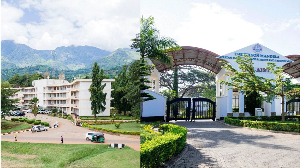Ghana has been struggling to make progress towards achieving the 95-95-95 global targets set by the UNAIDS by the 2025.
In 2023, only 65% of persons living with HIV in the country knew their status; and of that number, only 69% had been put on treatment; and about 89% of them had been attained viral suppression (meaning they can no longer pass on the virus to others).
Some experts have opined that one of the reasons for the country’s slow march towards the 95-95-95 can be traced to the ineffective HIV testing strategies implemented over the years.
According to them, majority of these testing interventions occur at the facility level and have not been particularly efficient in capturing populations such as high-risk men whose health-seeking behaviour is unpredictable. This has critical implications for them, as well as their sexual partners as available evidence suggests that persons with HIV who are undiagnosed are likely to have high viral loads and are more likely to transmit the virus.
In order to address this concern, the Ministry of Health and Ghana Health Service (MOH/ GHS) with support from the Global Fund introduced HIV self-testing (HIVST) in the country in 2023. Under the aegis of the National AIDS/STI Control Programme (NACP) the Ghana HIV and AIDS Network (GHANET) and its Community-Based Organizations (CBOs) undertook community demand generation and distribution of HIV self-testing (HIVST) kits throughout the country.
This year, the project is being scaled up to boost HIV Testing Services (HTS) coverage by improving case findings and locating hard-to-reach populations who may otherwise not be reached by traditional approaches to HIV testing services. At the forefront of this implementation is GHANET and its CBOs working in 50 HIV high-burden districts across the country.
As part of the implementation strategy, a series of stakeholder engagement meetings have been planned for groups including health workers, community opinion leaders, assembly members, journalists, regional health directorates, district health management Teams and in-charges of ART clinics in the districts of implementation.
The benefits of HIVST include privacy, confidentiality, convenience, and quicker results.
AM/KA
Watch the latest episode of Everyday People on GhanaWeb TV below:
Regional News of Wednesday, 4 September 2024
Source: www.ghanaweb.com
HIV Self-Testing Project: Test yourself to know your status - GHANET to Ghanaians
Meet the trader who says it’s better to educate your children than build a house | Everyday People
0 seconds of 9 minutes, 50 secondsVolume 90%
Press shift question mark to access a list of keyboard shortcuts
Keyboard Shortcuts
Shortcuts Open/Close/ or ?
Play/PauseSPACE
Increase Volume↑
Decrease Volume↓
Seek Forward→
Seek Backward←
Captions On/Offc
Fullscreen/Exit Fullscreenf
Mute/Unmutem
Decrease Caption Size-
Increase Caption Size+ or =
Seek %0-9













